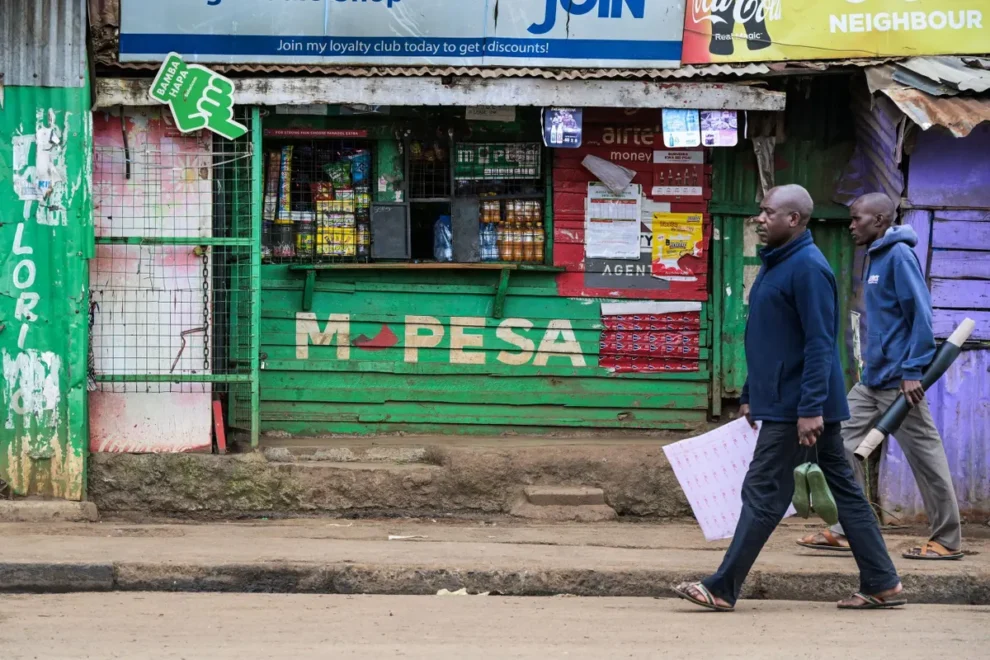Last week, 300 hundred venture capitalists descended on Nairobi for the Kauffman Fellows Summit, one of the world’s largest venture capital gatherings – and the first time it took place in Africa.
The story of technology in Africa in many ways is also a fintech story. The majority of Africa’s 10+ unicorns are fintech businesses, many of which I’ve covered in this column. Across 2021 and 2022, between 40-60% of VC funding in Africa went towards fintech.
Coming out of the event, the resounding conclusion is that the future of fintech – and by extension, technology more broadly – in Africa is bright. Here are five reasons why.
Africa Benefits From Strong Macro Tailwinds
As Auguste Comte once said, “demographics are destiny.” Well perhaps by extending this logic, our destiny is African. Today, the continent is 1.2 billion people, 70% of whom are under 35, according to the United Nations. More than 40% are under fifteen. By 2050, 25%of the world’s population will be African.
Not only is the theoretical market growing, the addressable technology market is too. According to research by Ingressive Capital, Africa has over 90% mobile penetration and 88% internet penetration. For context, Sub-Saharan Africa has more mobile users than the United States and the United Kingdom combined. Africans spend one third of their daily lives on their phones.
The African fintech market is projected to reach $65 billionn by 2030, representing a 13-fold increase over 2021.
The technology industry particularly is seeing tailwinds. While venture capital spending has cratered worldwide in 2022 and 2023, according to McKinsey research presented at the conference, in Africa it is up nearly 10%.
The Entrepreneurial Flywheel Is Starting
There are over 10 unicorns in Africa (depending how you count). This is 10 times more than there were a decade ago. And the amount of time it has taken local startups to reach this milestone has shortened dramatically. Interswitch took 14 years to reach that milestone. Andela took seven. More recently, Kuda took only three years.
And these companies are not just scaling, they are forging the next generation of founders. The local ecosystem is now ripe with early stage venture capital, mentors and a sense on how to start and scale.
The lifeblood of venture capital are exits. We are still early but there are emerging datapoints. Shola Akinlade, the CEO of Paystack, sold his business for $200 million to Stripe. Kopo Kopo recently sold to Moniepoint. Flutterwave is expected to IPO in the coming years.
The effect of mafias – groups from particular companies that go on to have outsized effects in their ecosystems, is well documented. The U.S. has the PayPal Mafia, while Middle East, North Africa, Afghanistan, and Pakistan have the Careem Mafia, and Latin America the Rappi Mafia (among others). There may soon be a few technology mafias emerging across the continent. Shola explained that over a dozen startups were founded by Paystack alumni for example.
Global Categories Are Being Built From Africa
The best ideas come from anywhere and scale everywhere. Many of these best ideas have emerged in Africa.
Mobile money was scaled successfully in Africa first by M-Pesa. Over 75% of the country’s GDP flows throw M-Pesa and has single-handedly been responsible for banking the population. Where M-Pesa is nearly ubiquitous in Kenya, in many of its neighboring markets financial exclusion remains the norm.
Over 300 mobile money deployments exist in nearly 100 countries– all inspired by the original. What’s more, mobile money has become a platform upon which others have built.
In the panel I moderated at the Kauffman Fellows Summit, Lawrence Kiambi the CFOCFO -0.4% of KCB (one of Kenya’s largest banks), and Chad Larson the CEO of Kopo Kopo (which recently sold to Moniepoint) described the range of services that were possible, affordable, and economical, because of M-Pesa – everything from home solar lanterns, to merchant acceptance, to car financing.
African businesses are also expanding internationally. Flutterwave for instance announced plans to scale to India. As GB Agboola, Flutterwave’s co-founder and CEO, told me: “Africa does not exist in isolation. While building local solutions that work great for the continent, it’s also important that Fintechs think of collaborations that will deepen connection between Africa and the rest of the world especially with its key trading partners.”
Startups In Emerging Markets Are Real Businesses
Startups in emerging markets build camels instead of unicorns. That is to say, they build startups with real, reliable unit economics, and a strong foundation. They don’t grow at any cost.
As a result, they are better prepared to weather the downturn when times are tough. A lack of venture capital is less likely to down a Camel – they didn’t depend at all costs on it to begin with.
Perhaps this is one of the reasons venture capital continues to grow in the region.
Allen Taylor, Managing Partner of Endeavor Catalyst (which has 33 investments across the continent) told me in an interview: “Emerging Market founders are just more resilient. We’ve been investing in Africa for almost 10 years now and the level of ambition and talent in on-par with anywhere in the world, including Silicon Valley. What sets founders on the African continent apart is that this ambition and talent is coupled with unmatched resilience to ‘stay alive’ through tougher times.”
Leading African Entrepreneurs Create Industries With Meaningful Impact
Why would you back a startup connecting you to dog walkers? This was the question the Governor of Nairobi posed the conference attendees. He went on: “Startups [in Africa] are building meaningful technology – access to food, water economic enablement.”
Technological innovation has the potential to do so much more than make our life convenient. It can help make it possible.
In emerging ecosystems around the world, startups create markets rather than Disrupt them – and that’s where the largest outcomes have come from. That’s why fintech across Africa isn’t about making something faster/cheaper but rather about providing real value to customers, and in some cases literally changing their lives.
Jeff Harbach, the CEO of Kauffman Fellows, told me that “after spending the last two weeks in Kenya, I believe that the future of tech has a home in Africa. And this future will be driven by Kenya’s (and Africa’s) greatest resource: it’s people. The talent, the drive, and the mindset of the people continues to grow and get stronger.”
The Future is African
We started the macros understanding why demographically the future is African. But for the reasons outlined above, (at least part) of the future of technology is too.
Source : Forbes











